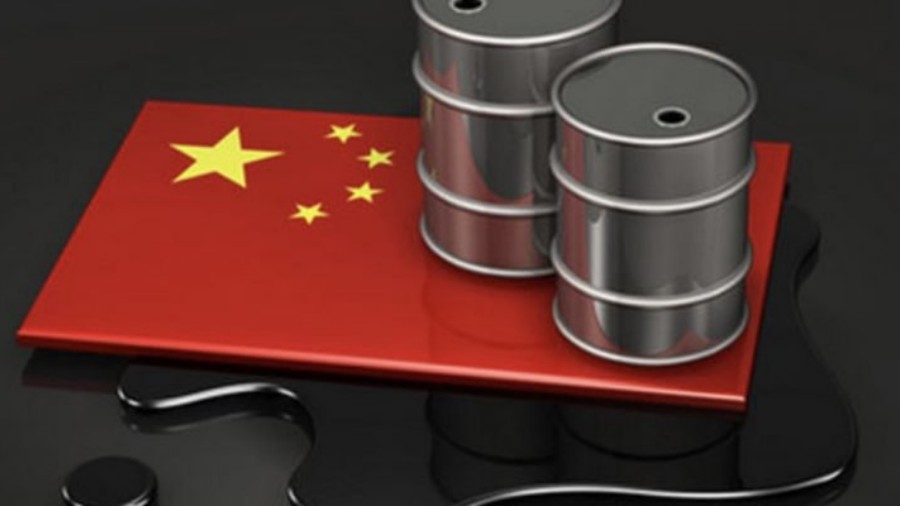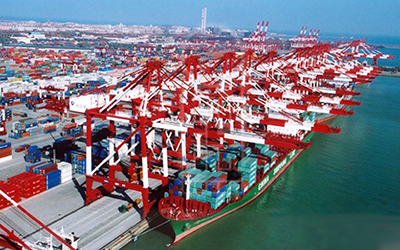
APPEC interview: Qingdao Port sees Shandong refineries' crude imports stable in 2019


The Shandong refiners were expected to slow down operations and imports next year following the start-up of two large integrated greenfield refineries -- Hengli Petrochemical and Zhejiang Petrochemical -- later this year. However, Liu believes the Shandong-based independent refineries, though smaller in size and scale, are more flexible in adapting to market changes.
"They have a relatively mature share in oil products' market, and have been preparing themselves to tackle the possible challenges, so it's not likely for them to cut crude imports drastically," he said.
QPI operates the Qingdao port and the Dongjiakou port in Shandong province, and accounts for about 16%-18% of total crude imports into China.
China's independent refineries imported around 64.70 million mt of crude oil over January-August, 46% of which was imported via the QPI ports, a Platts survey showed.
Given that the port handles such a large volume, imports via Qingdao usually determines the overall import trend by the independent refining sector in Shandong.
Platts Analytics expects the total crude oil imports by independent refineries will hit 92 million mt by year end, more or less stable from last year. Imports over January-August were up a marginal 0.6% year on year.
LOWER LOGISTICS COST
To better serve the independent refineries' robust demand for crude imports, Qingdao port plans to expand its crude pipeline further to Dongying, Shandong province's refining hub.
This will further cut the logistics cost for independent refineries.
"The logistics cost will be cut by at least Yuan 100 million ($14.6 million) annually for a refinery once it is connected to the pipeline network," Liu estimated.
The 2.2 million mt/year Qirun Petrochemical refinery, for example, has been able to lower its crude shipping cost from the QPI ports by 40% from around Yuan 110/mt, since it began using the pipeline compared with the traditional way of shipping crude on trucks, Liu added.
QPI started up the Qirun section of the Dongwei pipeline in July -- part of the pipeline network that connects the refinery with Dongjiakou port.
Logistics usually account for around 3%-5% of the total cost by independent refineries, and savings on this translate to higher margins, which have been under pressure by rising taxes.
The two ports currently have three VLCC berths, two crude pipelines and a storage capacity totaling around 16 million cubic meters.
PORT PLANS
To further connect another five independent refineries with the two ports by end-2019, QPI plans to start construction work on Phase 3 of the Dongwei crude oil pipeline in October.
Once completed, a total 14 independent refineries will be connected to the crude pipeline network from Dongjiakou.
Around 30 million mt/year of crudes are expected to be transmitted via the network in 2020, which would account for a third of the sector's total imports.
The Dongwei crude oil pipeline, which connects the Dongjiakou port with storage facilities in Weifang, is dedicated for independent refineries around Weifang, Zibo and Guangrao.
QPI also plans to construct a second VLCC berth in Dongjiakou in 2019, in an effort to boost total storage capacity to 26 million cu m by end-2020.


Trump weighs using $2 billion in CHIPS Act funding for critical minerals

Codelco cuts 2025 copper forecast after El Teniente mine collapse

Electra converts debt, launches $30M raise to jumpstart stalled cobalt refinery

Barrick’s Reko Diq in line for $410M ADB backing

Abcourt readies Sleeping Giant mill to pour first gold since 2014

Nevada army depot to serve as base for first US strategic minerals stockpile

SQM boosts lithium supply plans as prices flick higher

Viridis unveils 200Mt initial reserve for Brazil rare earth project

Tailings could meet much of US critical mineral demand – study

Kyrgyzstan kicks off underground gold mining at Kumtor

Kyrgyzstan kicks off underground gold mining at Kumtor

KoBold Metals granted lithium exploration rights in Congo

Freeport Indonesia to wrap up Gresik plant repairs by early September

Energy Fuels soars on Vulcan Elements partnership

Northern Dynasty sticks to proposal in battle to lift Pebble mine veto

Giustra-backed mining firm teams up with informal miners in Colombia

Critical Metals signs agreement to supply rare earth to US government-funded facility

China extends rare earth controls to imported material

Galan Lithium proceeds with $13M financing for Argentina project

Kyrgyzstan kicks off underground gold mining at Kumtor

Freeport Indonesia to wrap up Gresik plant repairs by early September

Energy Fuels soars on Vulcan Elements partnership

Northern Dynasty sticks to proposal in battle to lift Pebble mine veto

Giustra-backed mining firm teams up with informal miners in Colombia

Critical Metals signs agreement to supply rare earth to US government-funded facility

China extends rare earth controls to imported material

Galan Lithium proceeds with $13M financing for Argentina project

Silver price touches $39 as market weighs rate cut outlook

















